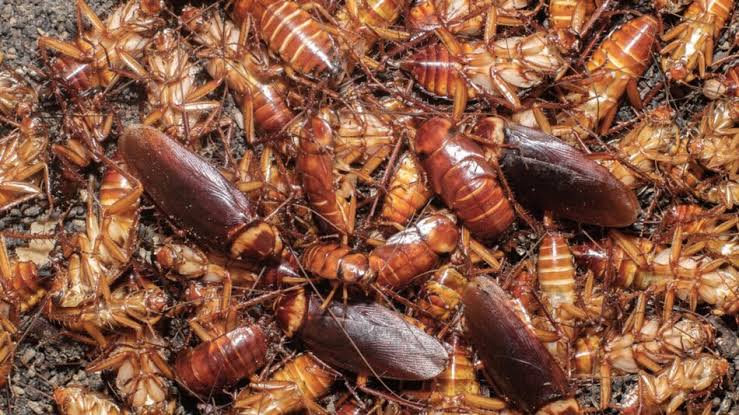
Faith Nyasuguta
Insects! Some cringe at the mention of the word since they may come across as filthy, ugly and nasty creatures that transfer germs from one source to another, but in essence, they are worth more than that.
In its view, the World Bank projects that insect farming could be the answer to the continent’s hunger, poverty, and ecological crisis.
Apart from the economic benefits, insect farming is said to have some great nutritional value since it tackles undernourishment that affects one in every five people in the African continent.
In Africa, Insect consumption has a long history, but the aspect of insect farming is pretty much recent. Africa consumes way over 520 species of the 2,100 insect species recognized as edible across the globe.
INSECT FARMING

Out of all the edible insect species, approximately 18 have been categorized under those suitable for farming and upscaled production for animal feed or direct consumption by humans.
Among the named insects are cockroaches. As of February 2022, statistics show that the trend in this type of farming is gradually gaining steam across Africa.
According to reports cited online, “human beings have eaten insects and hydroponic crops for hundreds of years. But farming them is new.”
In Tanzania for instance, Daniel Rwehura is a pioneer in cockroach breeding. In the eyes of the middle-aged man, the six-legged insects are a replica of gold. While trading, he sells each kilo of cockroaches at 5 euros.
He opines that insect farming comes very cheap and that it can be done anywhere. So far, his main buyers are poultry and fish farmers but sometimes, he also gets individuals who buy for their domestic consumption.
He adds that the market for insect farmers is even growing wider as research institutions buy them for their research.
NUTRITIONAL, MARKET VALUE
The World Bank predicts that insect farming could produce enough meals to meet up to 14 per cent of the crude protein needed to rear all the pigs, goats, fish and poultry in Africa.
In East African nation Tanzania, the business seems to be growing quite popular with Lusius Kawogo, a different farmer, claiming to have made a fortune from this. He boasts of even getting enquiries from people outside Tanzania seeking to buy from him.
“People thought I was mad when I started farming cockroaches and now it earns me a good living,” said Kawogo.
Adding, ““I wish we had several people interested in farming cockroaches as we would be able to supply in large quantities.”

The duo says that cockroaches require no food other than scraps at your local waste disposal facility making it easy for farming.
“The market for insects as food and animal feed will be worth up to US$8 billion by 2030, a 24 per cent compound annual growth rate (CAGR) over the decade,” estimates show.
DO AFRICANS WANT TO FARM INSECTS?
Studies have shown that Africans are willing to farm insects.
For instance, a study of Ugandan fish farmers shows that “over 90 per cent were willing to use insects for feed, but fewer than half ever had.”
However, in Africa, insect farming institutions and regulatory frameworks are still in their early stages.





Recent Comments